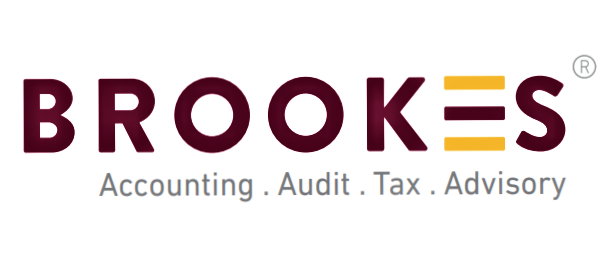Space to grow: Accelerators and Incubators
Space to grow: new models of business support. Accelerators, incubators and accountants report examines how alternative business support models, such as accelerators and incubators, are being used to allow more small to medium-sized enterprises (SMEs) and start-ups to achieve rapid growth and support their recovery post COVID-19. The report highlights the growing importance of small business support ecosystems and provides information for accountants and small and medium-sized practices (SMPs) looking to collaborate with these new support models. (Study prepared by ACCA).
Accelerators and Incubators
Accelerators are focused on growth and access to funding, typically aiming to stimulate companies that will scale rapidly or fail fast. Although elements such as networking, mentoring and market access are increasingly seen as equally important. Accelerators typically accept companies that have a minimal viable product (MVP), offer more focused, sector-based approach and are more resource and finance intensive. They offer highly selective, cohort-based and time-limited programmes (usually 3-12 months). Accelerators can often base their business model on equity from the start-ups.
Incubators support business creation and development, they are typically physical spaces, available on relatively flexible terms, which provide additional support services, specialist equipment or facilities such as laboratories. Incubators usually support early stage founders refining their product, but also mentor and consult entrepreneurs over longer time period. Incubators can be non-profit institutions set up by universities, governments, donors, or commercial enterprises and investor groups. They can be charging rent or membership fees to residents, often on a monthly basis.
Depending on the country, incubators and accelerators can provide general business support and access to finance to a wide range of start-ups and SMEs, or in-depth support concentrated on specialised industry verticals and sectors. Their goals differ between countries and regions: in the emerging markets the aim may be primarily to foster entrepreneurship as an alternative to employment and encourage businesses that will themselves create jobs. Or they may intend to create ‘clusters’ of new enterprises and promote the country as a target for more inward investment. In more mature markets, such as the UK, incubators and accelerators may focus more narrowly on very high-growth sectors and candidates. Different goals have different patterns of risk: a high failure rate may be acceptable when the goal is to help investors to find the next ‘unicorns’, less so when it is to create a generation of resilient and self-supporting entrepreneurs.
Accountants, accelerators and incubators
Accountants can play a vital role in the new business support infrastructure and also complement it. Start-ups and growth businesses need sound financial management and data as they start and grow their businesses. Accountants and small and medium-sized practices (SMPs) can provide much more than mere compliance – they can become growth partners, and grow with their clients. Working with the accelerators and incubators might also mean access to clients or the introduction of their own clients to the right incubators or accelerators.
SMPs in particular can adopt some of the techniques and approaches used by accelerators and incubators and become “enterprise growth hubs” themselves. Some of the progressive practitioners combining their expertise powered by digital are already acting as accelerators and incubators for groups of high growth businesses and are also supporting the businesses seeking for support in their recovery or transformation post Covid-19.
Enabling growth
Chief financial officers (CFOs) within SME sectors or SMPs acting as portfolio CFOs, looking beyond compliance, provide the expertise and insight needed to drive business growth and are often seen as growth enablers, which is aligned with the overall goal of small business support models, whether accelerators or incubators.
Early-stage start-up support
Accountants provide their clients with the solid financials and forecasting needed to enter incubation and acceleration programmes and pitch to investors. They help start-ups in telling their story using financial data. Start-ups often struggle to cover the costs of accountancy and accountants can offer support in exchange for support, particularly technical support, or even good will.
Access to Finance
Finance is key to start-ups and accountants are best placed to guide their clients through the maze of finance options available and the pitfalls and benefits associated with each. They may even be able to connect their clients directly to sources of finance, possibly available within business support models, including accelerators and incubators.
Mentoring
Entrepreneurs whose businesses grow will be moving into unfamiliar territory which will challenge their business knowledge. Accountants who have developed their own business advisory capabilities will be able to both support clients in decision making and develop them as business leaders. Accountants are often invited to act as mentors on incubation and acceleration programmes.
External Finance Function
One of the key benefits of incubators is the ‘back office’ support they provide to entrepreneurs who may lack the skills to deal adequately with financial matters, or simply be better positioned for developing and promoting their business. Digital accountants can play a part in this, by providing packaged services, access to platforms or even a fully outsourced finance function.
Networking
Accountants can offer their clients a wide range of networking opportunities, both within their own client base and through their wider connections with the local or even global business community and support models such as incubators and accelerators. In this evolving ecosystem, accountants are collaborating with each other more actively to bring complementary skill sets to clients and small business support ecosystem.
Technology evangelists
Accountants and SMP firms are ‘technology evangelists’ for small business and the start-ups sector. They are at the forefront of wider small business digital transformation, not only implementing finance technology solutions, but also creating ‘app stacks’ within a particular app ecosystem or integrating ‘best of breed’ solutions tailored to small businesses. Technology is an important pillar for both the recovery and enhanced growth of the small business sector and accountants and those operating small business support models should see this as an increasingly interesting point of synergy.
Post-COVID recovery
COVID-19 has put extreme pressure on smaller businesses, many of which have had to close their doors as a result. Others have experienced extremely rapid growth. Many support networks have found their members and alumni looking to them for support, not to grow but to survive. A number of incubators and accelerators have activated their members and former members to work together for mutual support and to find innovative solutions to a range of issues thrown up by the crisis. In this crisis, the tool sets developed by the incubators and accelerators have proved very adaptable: existing businesses may have been forced into start-up, or rather ‘start-anew’ mode, looking for new business models that will enable them to find new markets or serve existing customers in different ways, while coping with pressures on supply chains, logistics and finance. Others will have had to cope with the consequences of explosive and unexpected growth putting a strain on all their systems.
Incubator and accelerator communities have risen strongly to the challenge of COVID-19 to create innovative solutions to problems created by the crisis, and to anticipate the needs of the post-COVID world. So have the accountancy community and SMPs, that were often referred to as the “emergency services” for small business sector working individually and collectively to keep thousands of small businesses afloat. As part of SME support ecosystem, the communities of accelerators and incubators and SMPs are expressing interest in further developing cooperation to support small business recovery.
Contact us for more consultations and assistance with regard to Incubator and Accelerator programs.


